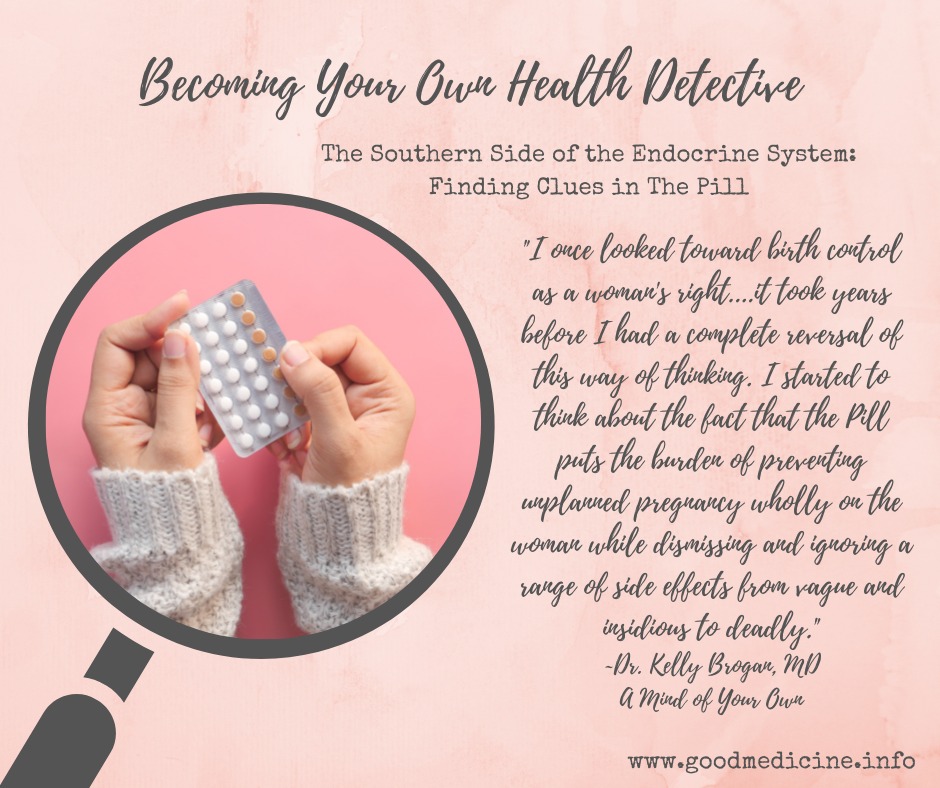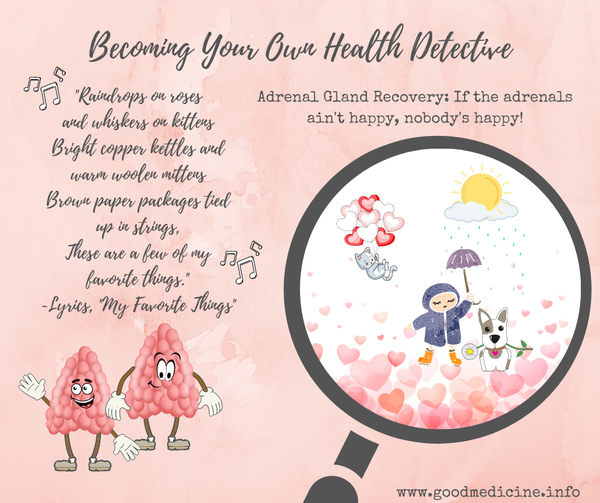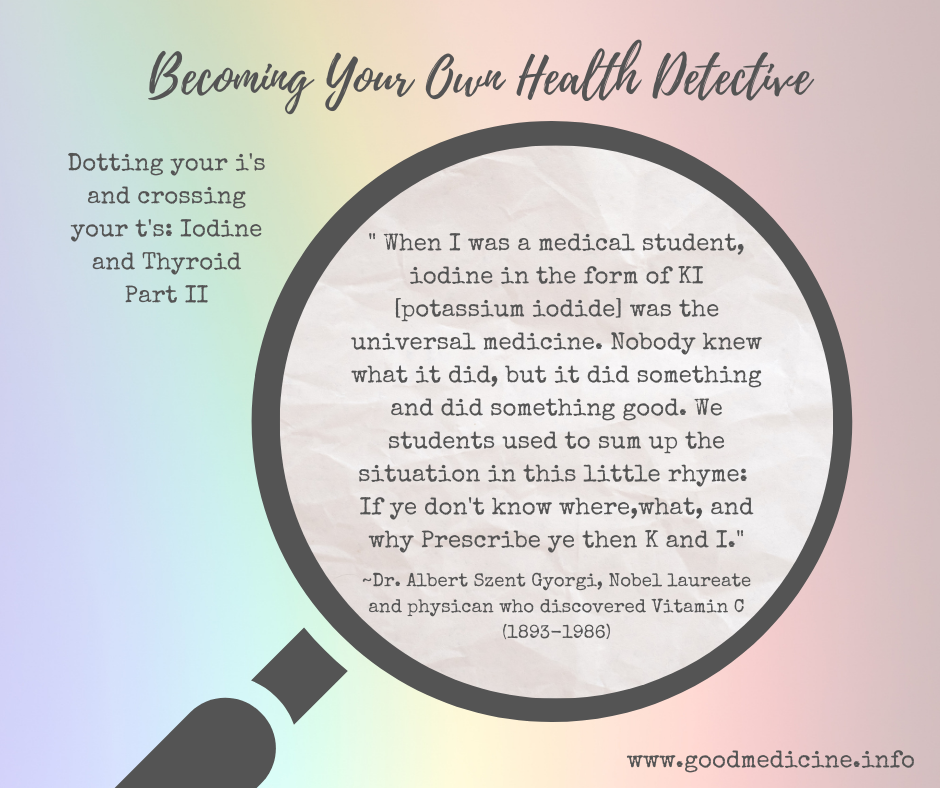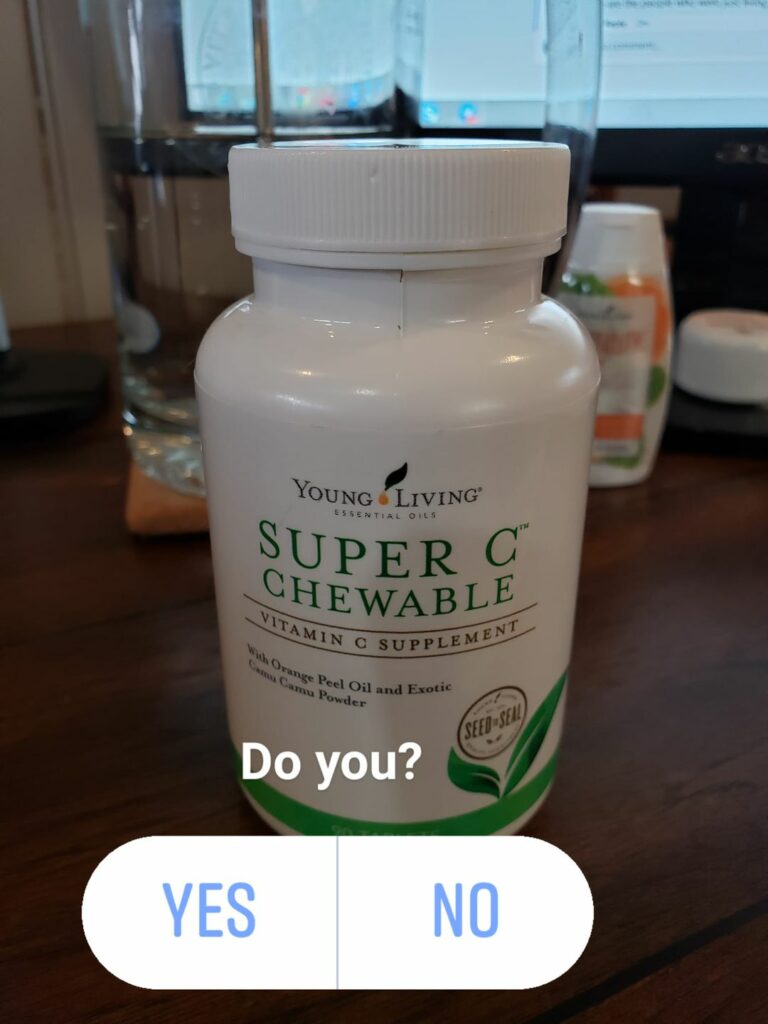The Southern Side of the Endocrine System: Finding clues in The Pill
“Fellow citizens, we cannot escape history.” ~Abraham Lincoln
The further I get into my life, the more appreciation and value I’ve placed on ferreting out root causes… not only in health matters, but also in the consequences (both good and bad) of relationships, government, … pretty much anything that has made me ask “Why?”. This curiosity has proven to be both a blessing and a curse because I’ve been down some pretty deep and winding rabbit holes, usually coming up for air with a different outlook on what I thought I knew. For those of you who have also engaged in learning in this manner, this will resonate deeply with you. Once you have learned something that is verifiably true but unpopular in media presentation, you have to make a choice: either swim upstream, or swim in the direction of the majority and try to forget what you have learned. In my own personal observation, the latter does not bode well either emotionally or physiologically . A person cannot live a duality (believing one thing yet acting in opposite) for long without negative consequences ultimately manifesting.
I spent decades (both personally and professionally) in educated ignorance, believing that birth control pills were benign “helpers” for preventing pregnancy and calming dragonesque cycle symptoms. Perhaps you do (or did) too. In my defense, it wasn’t my fault. This is what we are taught in pharmacy school as are all health professionals taught within the singularly allopathic education setting.
Hormone based birth control is one of the most common types of prescriptions filled in a retail pharmacy setting. An estimated 14% of women aged 15-49 utilize synthetic hormone based birth control (pills, IUD’s, implants, vaginal rings, and patches). With numbers that high, how could a class of products not be both safe and effective?
“It is difficult to get a man to understand something when his salary depends on his not understanding it.” ~ Upton Sinclair
At some point, culturally, we lost the history of birth control pills. Had we known the history, and had we kept up with the outcomes, would we (culturally) still be choosing the perceived easier swim downstream? I don’t have the time within this series to write the pages upon pages that should be devoted to this topic, so I’m leaving breadcrumbs for you to go digging on your own, or at the very least perhaps raise a hairy eyebrow and give the facts some serious thought.
“It would be natural at this point to think, ‘It’s been 50+ years! Surely today’s version of The Pill has been proven safe.’ That’s a reasonable assumption. However, it’s dead wrong. The maker of today’s most popular birth control brands [as of 2019] Yaz and Yasmin, paid out $2.04 BILLION to settle over 10,000 blood clot lawsuits as of 2016, and the number of injuries, deaths, and lawsuits continues to rise.” ~ ( Book: In the Name of The Pill, page 30)
Book: In the Name of The Pill, page 30)
The reality is that sometimes decades go by before a very serious side effect is appreciated, and if there is enough money to be made, “those with the gold ultimately make the rules” (and make digging for truth a little harder).
Birth control pills come with a fine print document thanks to the 1962 Kefhauver-Harris Amendment. In addition to establishing both safety and efficacy, it also introduced the concept of patient informed consent. Allow the patient to make their own decision after weighing the pros and cons. Have you ever read one of these patient package inserts?
I’m including a link here for the popular birth control pill, Yaz, as a real world example. It’s 29 pages long and corroborates what I’m about to share:
According to FDA access data sheets on birth control pills, there is risk (think clues!) of:
********************
I’ve focused mostly on synthetic estrogen and estrogen dominance up (see previous posts on estrogen dominance and endocrine disruptors) and I would be remiss if I didn’t discuss the distinct differences between natural progesterone and synthetic progestins.
Progesterone is enormously beneficial to a woman’s body. It:
Conversely, Progestins (the synthetic version of naturally occurring progesterone) can cause:
(Note that many of these are similar in nature to estrogen dominance.)
When you use synthetic progestins, the body quits making its own progesterone (the good stuff!), and the synthetic variety “clogs up” the progesterone receptors in the body. If a woman has been taking progestins for quite some time, it’s likely that her body will have to relearn how to produce progesterone again which may take several months. Herbs that help support the body’s natural progesterone production include chasteberry (also known as vitex), evening primrose oil, rhodiola, ashwagandha (found in Young Living’s EndoGize ), schisandra, and wild yam (found in Young Living’s Progessence Plus serum, Femigen capsules, Regenolone and Prenolone Plus creams). Foods which also support healthy progesterone production include those high in zinc, Omega 3’s, vitamin C, magnesium, and B vitamins. Do your research and eat for your hormones! If obtaining enough in a daily diet is challenging, consider adding Young Living’s Super C chewables, and Super B tablets. Several Young Living supplements (ex: Master Formula & OmegaGize3 respectively) also contain magnesium, zinc and Omega 3’s!
I realize I’ve dropped many bread crumbs for you to follow here. Heck, there are some downright loaves waiting to be picked up and examined should you be so inclined. There is much more to be learned from the story of The Pill.
There are many reasons women use BCP’s outside of preventing unplanned pregnancies, and by using synthetic hormones as a chemical band-aid, the root cause of the issue is being left to fester. Find a holistically minded health care professional who will help you find and address your root cause(s). It literally could be as simple as changing diet, addressing stress, supplementing to prevent a deficiency, using Young Living essential oils strategically, or increasing exercise!
Are there other effective options for preventing unplanned pregnancies? Certainly, there are, and there are emotional, physical, and relational health benefits to be had in utilizing them. There are a variety of cycle “health detective” clues you can come to rely on with remarkable accuracy. Do some digging on the topic “Natural Family Planning Methods”.
Fertility is not a disease and there is a rather steady supply of evidence which indicates that by medicating otherwise healthy women, we have unwittingly done great harm in the process. My job as a pharmacist is to provide the patient package insert as instructed by the Congressional Kefhauver-Harris Amendment, thereby giving the patient the opportunity of informed consent.
Risk versus benefit.
It’s the patient’s right, responsibility, and choice to either consent or deny. Most have never received a thorough explanation allowing for an educated decision.
Lots of clues friends! Embrace the sleuthing process. It will only serve you well. I promise.
xoxo~ liz




